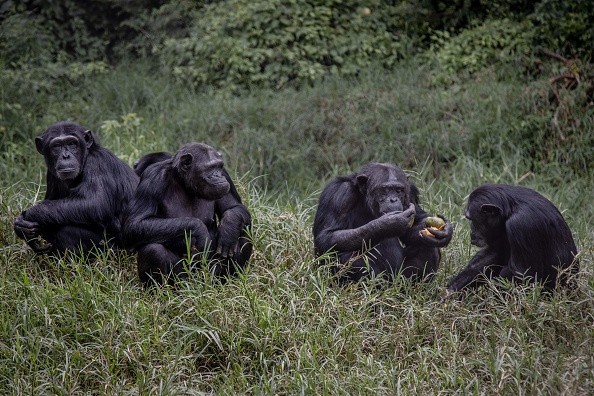Researchers in Gabon, West Africa, spotted chimpanzees applying insects to their wounds and that othera for the first time. This wound-tending behavior is an evidence that chimpanzees possess prosocial behaviors that have been related to empathy in humans, according to scientists.
Wound-tending Behavior Observed in Chimpanzees

Wound-tending behavior in chimpanzees was described in a study published on February 7, 2022, in the journal Current Biology.
While volunteering at the Ozouga Chimpanzee Project in November of this year, Alessandra Mascaro saw an adult chimp named Suzee taking a bug from the air and applying it to the cut on her son Sia's foot.
According to Scitech Daily, these chimpanzees had been studied for seven years by researchers from the Ozouga Chimpanzee Project, but they had never seen anything like this before. One of the project's primatologists and an Osnabrück University cognitive biologist were present as Mascaro filmed the mother and son.
Chimpanzees in Ozouga were observed by researchers for 15 months for this type of wound-tending activity, and they documented 76 cases of the group applying insects to wounds on themselves and others.
Observations of nonhuman creatures self-medicating are not new. Bears, elephants, and even bees have been found to engage in this behavior by researchers. Insect applications have never been observed, and the chimpanzees not only treat their own wounds, but also those of other chimpanzees. This is remarkable.
Researchers Amazed by This Behavoir
Pika was astonished to witness chimpanzees helping people who were not related to them. An example of prosocial activity, says Pika, would be rubbing an insect on another person's wounds in order to alleviate their pain.
Since so many people doubt other animals' prosocial qualities, this is extremely astounding to see, Pika added. The world now has a species in which individuals may be seen to care for each other.
It's obvious that in some ape social interactions, there is an exchange of value. It is a win-win situation for both the chimps being groomed and the person doing the grooming.
Dr. Pika, on the other hand, discovered that the chimpanzee receives nothing tangible in return for her efforts.
Pika said: "This is, for me, especially breathtaking because so many people doubt prosocial abilities in other animals. Suddenly we have a species where we really see individuals caring for others," according to Eurekalert.
What Type of Insects are Chimpanzees Applying on Each Other?
The chimpanzees may be employing a variety of insects, but researchers don't know which ones or what their medical properties are. According to Pika, there have been studies showing that insects can be used as antibacterial, antiviral, and anthelmintic remedies.
Humans use many species of insect as remedies against sickness, he continues. Insects may also have pain-relieving capabilities, according to the scientists' hypotheses.
They're now trying to figure out which insects chimpanzees are using, as well as who is applying the insects. Deschner thinks that studying big apes in their native habitats is critical to understanding our own cognitive evolution.
In order to better understand and safeguard them, researchers must devote more time and resources to their research and conservation.
Related Article : New Study Reveals Chimpanzees Pass on Their Knowledge to Next Generation, Just Like Humans
For more news, updates about chimpanzees and similar topics don't forget to follow Nature World News!
© 2025 NatureWorldNews.com All rights reserved. Do not reproduce without permission.





